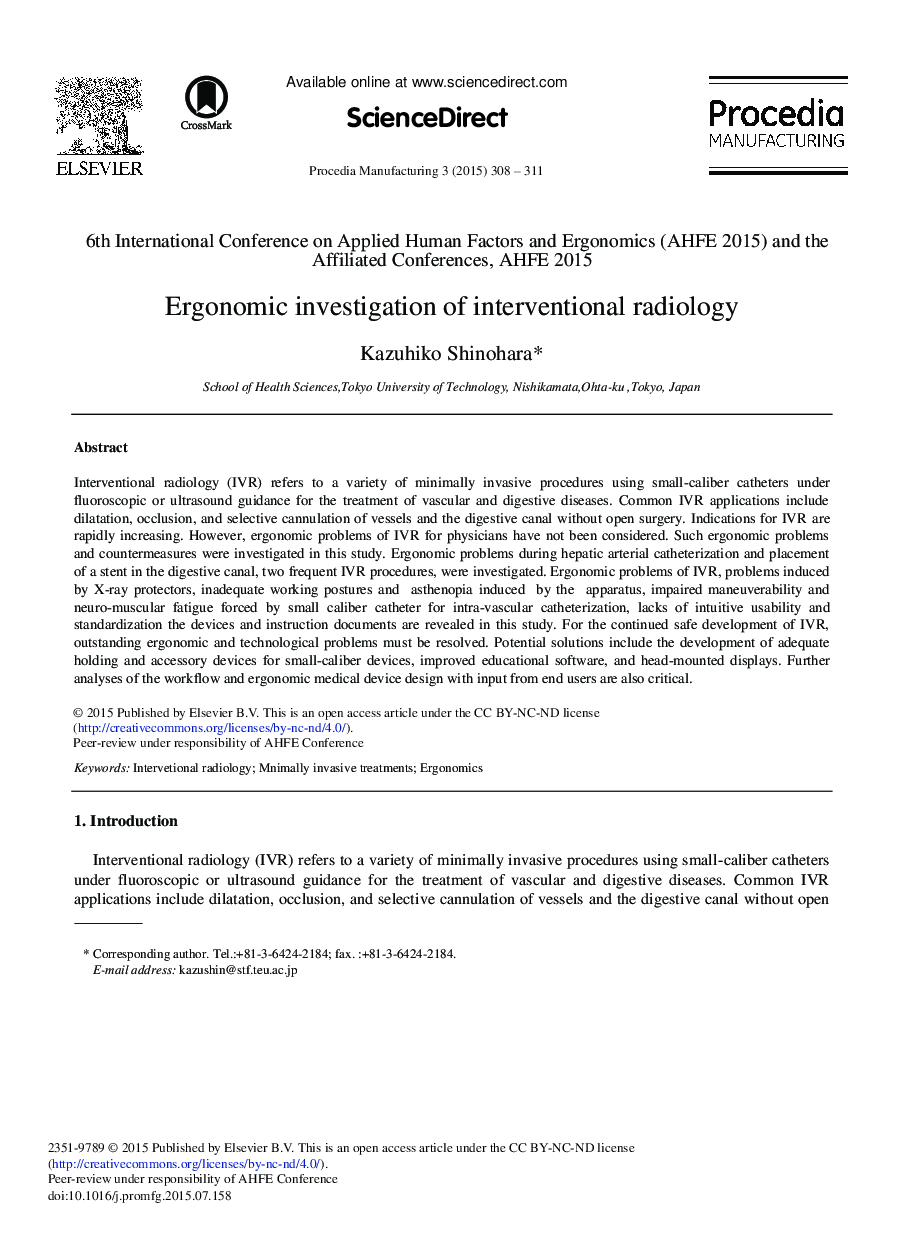| کد مقاله | کد نشریه | سال انتشار | مقاله انگلیسی | نسخه تمام متن |
|---|---|---|---|---|
| 1143802 | 1489609 | 2015 | 4 صفحه PDF | دانلود رایگان |
Interventional radiology (IVR) refers to a variety of minimally invasive procedures using small-caliber catheters under fluoroscopic or ultrasound guidance for the treatment of vascular and digestive diseases. Common IVR applications include dilatation, occlusion, and selective cannulation of vessels and the digestive canal without open surgery. Indications for IVR are rapidly increasing. However, ergonomic problems of IVR for physicians have not been considered. Such ergonomic problems and countermeasures were investigated in this study. Ergonomic problems during hepatic arterial catheterization and placement of a stent in the digestive canal, two frequent IVR procedures, were investigated. Ergonomic problems of IVR, problems induced by X-ray protectors, inadequate working postures and asthenopia induced by the apparatus, impaired maneuverability and neuro-muscular fatigue forced by small caliber catheter for intra-vascular catheterization, lacks of intuitive usability and standardization the devices and instruction documents are revealed in this study. For the continued safe development of IVR, outstanding ergonomic and technological problems must be resolved. Potential solutions include the development of adequate holding and accessory devices for small-caliber devices, improved educational software, and head-mounted displays. Further analyses of the workflow and ergonomic medical device design with input from end users are also critical.
Journal: Procedia Manufacturing - Volume 3, 2015, Pages 308-311
